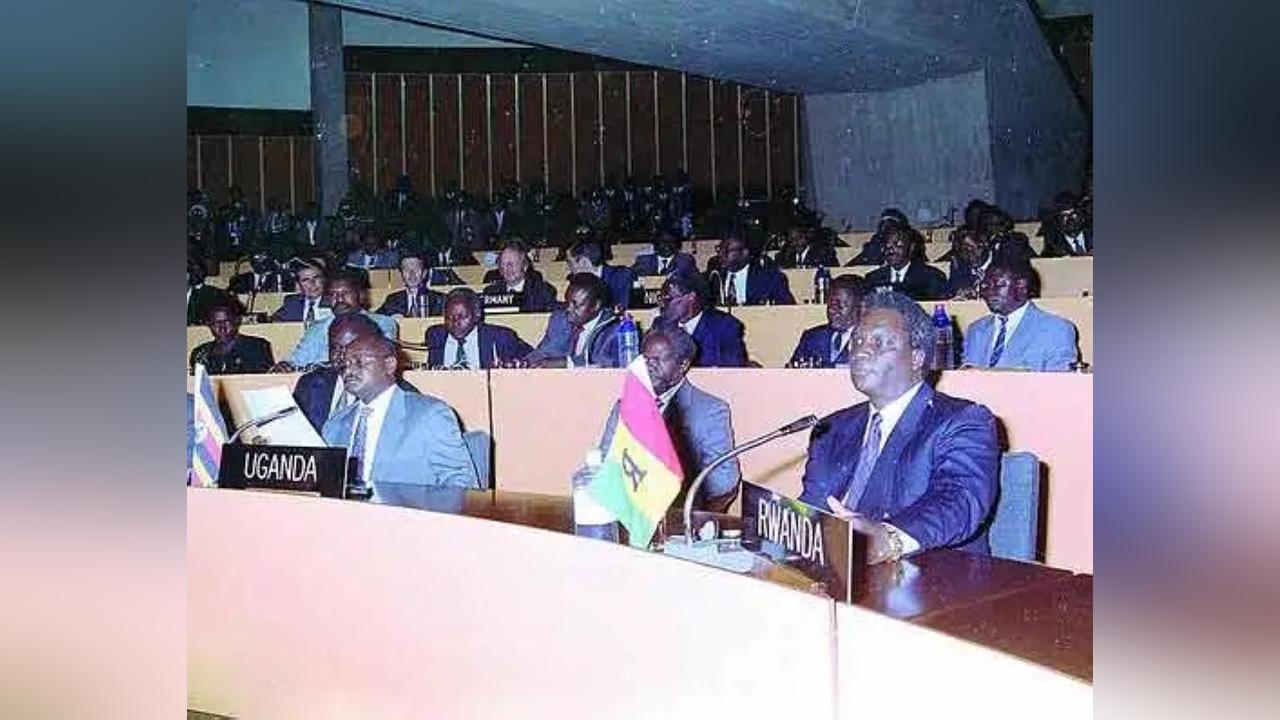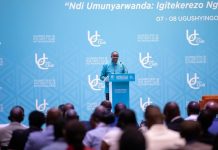Peter Ruti
Africa-Press – Rwanda. In the last article in this serialised narrative, we saw how, from September 10, 1993, Rwanda entered an institutional vacuum that the forces opposed to the Arusha Accords took advantage of to render it inoperable. The tag of war that ensued laid bare President Juvenal Habyarimana’s political bankruptcy, as this piece will show.
The Arusha Accords were a series of peace agreements signed in Arusha, Tanzania, in August 1993, between Habyarimana’s government and the Rwanda Patriotic Front (RPF) rebellion to end the war.
On several occasions, the Prime Minister and the representatives of the UN Secretary General summoned the transitional government and Members of Parliament to take oath.
Only the President was sworn in on January 5, 1994. The UN representative or the Prime Minister of the transitional government convened several meetings to resolve the situation, but all of them failed. Habyarimana did the same but with no right. Embassies too, notably German and the US, organised meetings in order to break the deadlock.
The extremist CDR party was happy with the blockage of the application of the Arusha agreement. According to CDR, the problem was the Hutu-Tutsi factor aimed at controlling power. As long as this problem was not resolved, there would be no peace. Furthermore, according to CDR, several clauses of the agreement were anti–democratic, unrealistic and therefore inapplicable.
The RPF refused to renegotiate matters that were covered by the agreement and warned against any attempt to deviate from the Arusha process. The position of RPF on the lists that were submitted for approval was that, among others, it only recognised the list of Parliamentarians elected during the period that was prescribed by the Arusha Peace Agreement.
CDR claimed that RPF rejected its participation in transitional institutions.
According to the RPF, this marginal group [CDR], which had never supported the provisions of the Arusha Peace Accord and whose behaviour was marked by violence and slanderous remarks would not qualify for the Transitional National Assembly representation.
This was according to Article 61 of the Arusha Accord. CDR which did not sign the agreement, changed its mind and signed the code of conduct, claiming that it respected the agreement. It did this in order to enter the Transitional National Assembly. It signed as a matter of principle but kept its sectarian ideology. Pressure was exerted on RPF to compel it to renounce its inflexibility towards CDR, but RPF was firm on its position.
As for RPF, the principle of a state of law prohibited sectarian practices and any form of violence which were characteristic of CDR. The then Tanzanian Minister of Foreign Affairs, Joseph Clemence Rwegasira, tried to disentangle the situation during his one-week visit, from March 17, 1994, by meeting several political stakeholders, but to no avail.
The donors who were consulted for finances during the transitional period, became more and more impatient to see the formation of a new government in order to release their aid. Many joint RPF-government meetings were held during September 1993 to solicit for aid.
Willy Claes, the Belgian Foreign Affairs Minister, said that the international community as well as Belgium would not accept further delay in the application of the Arusha Agreement. The Belgian Defence Minister, Leo Delcroix, affirmed that Belgium could not wait indefinitely for the establishment of transitional institutions. The UN Secretary General, Boutros Boutros Ghali, also warned the Rwandese factions. He said, “If the agreement is not put into force, we shall consider withdrawing UNAMIR forces”.
It was against the backdrop of this very tense social climate, marked by insecurity and a power vacuum, that extremists made their preparations for the 1994 Genocide against the Tutsi and massacres. It was necessary to eliminate all natural or ideological allies of RPF so that during the elections, the latter in turn would be eliminated from the political scene.
Source: The New Times
For More News And Analysis About Rwanda Follow Africa-Press






